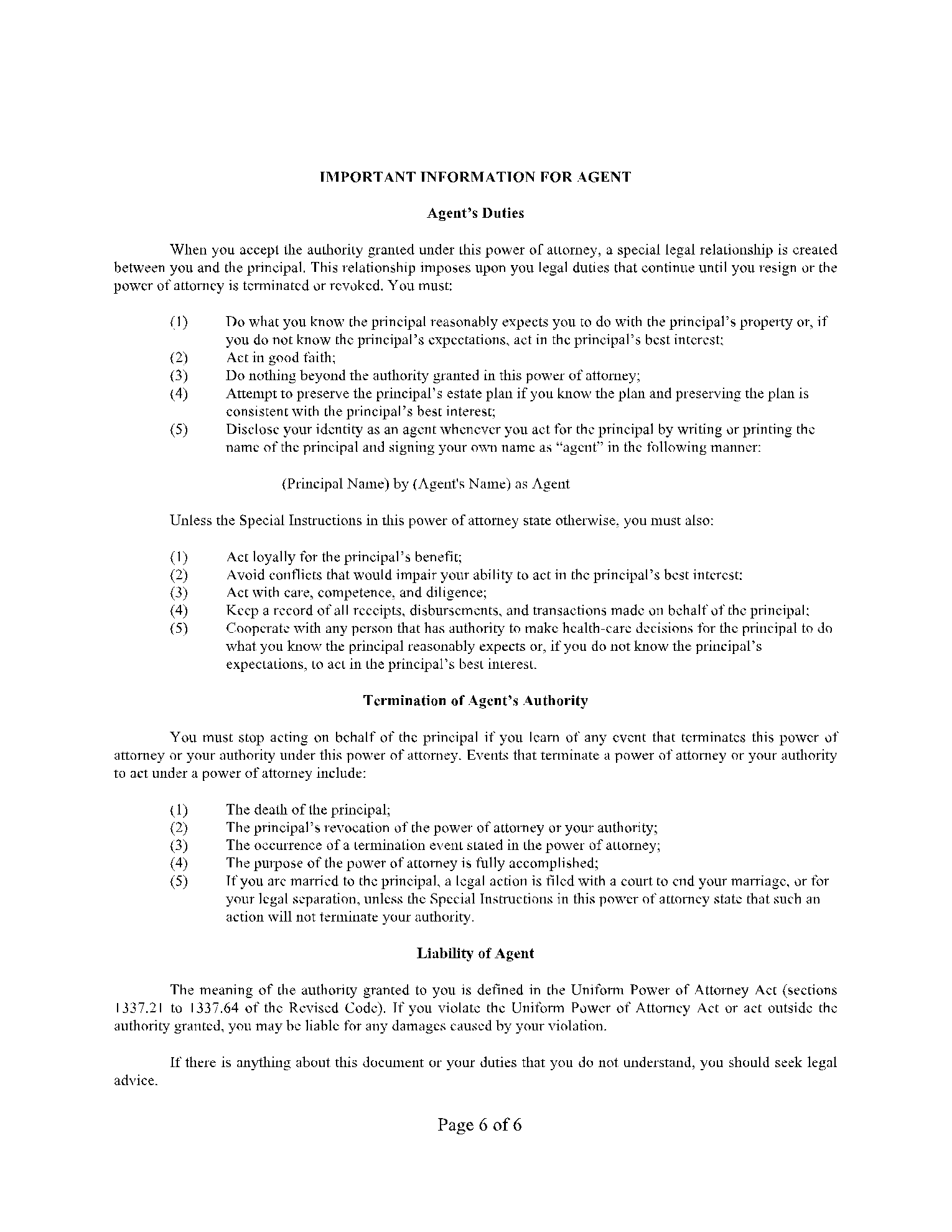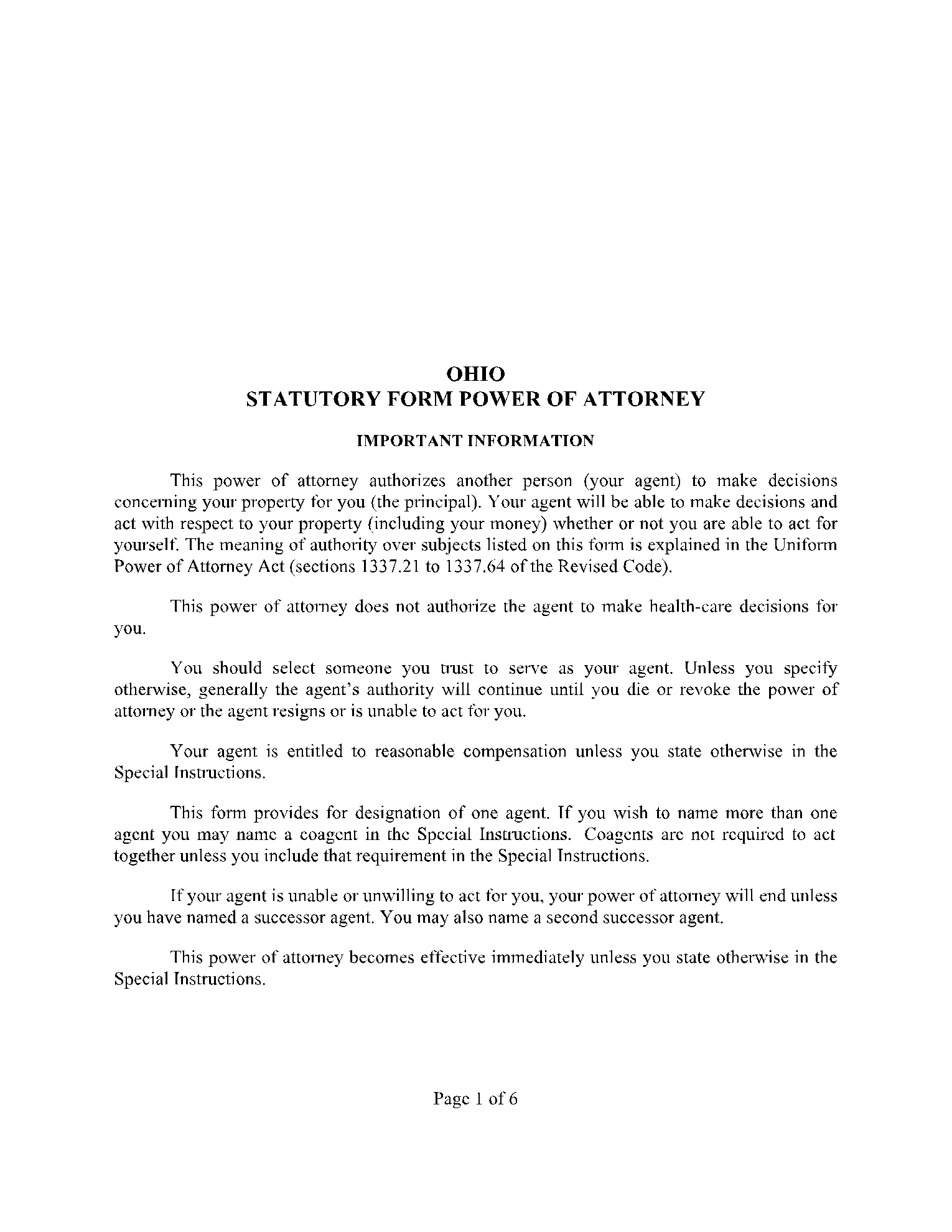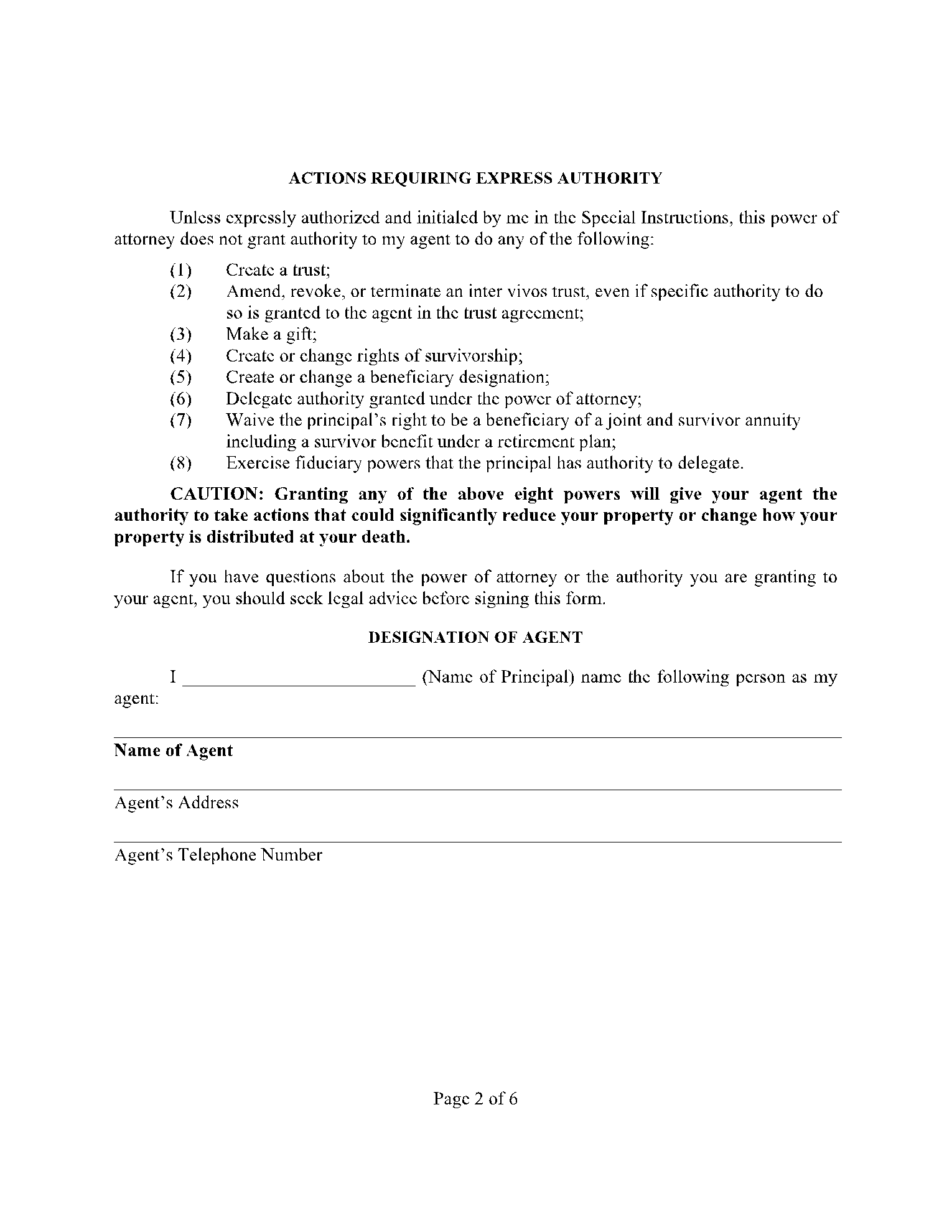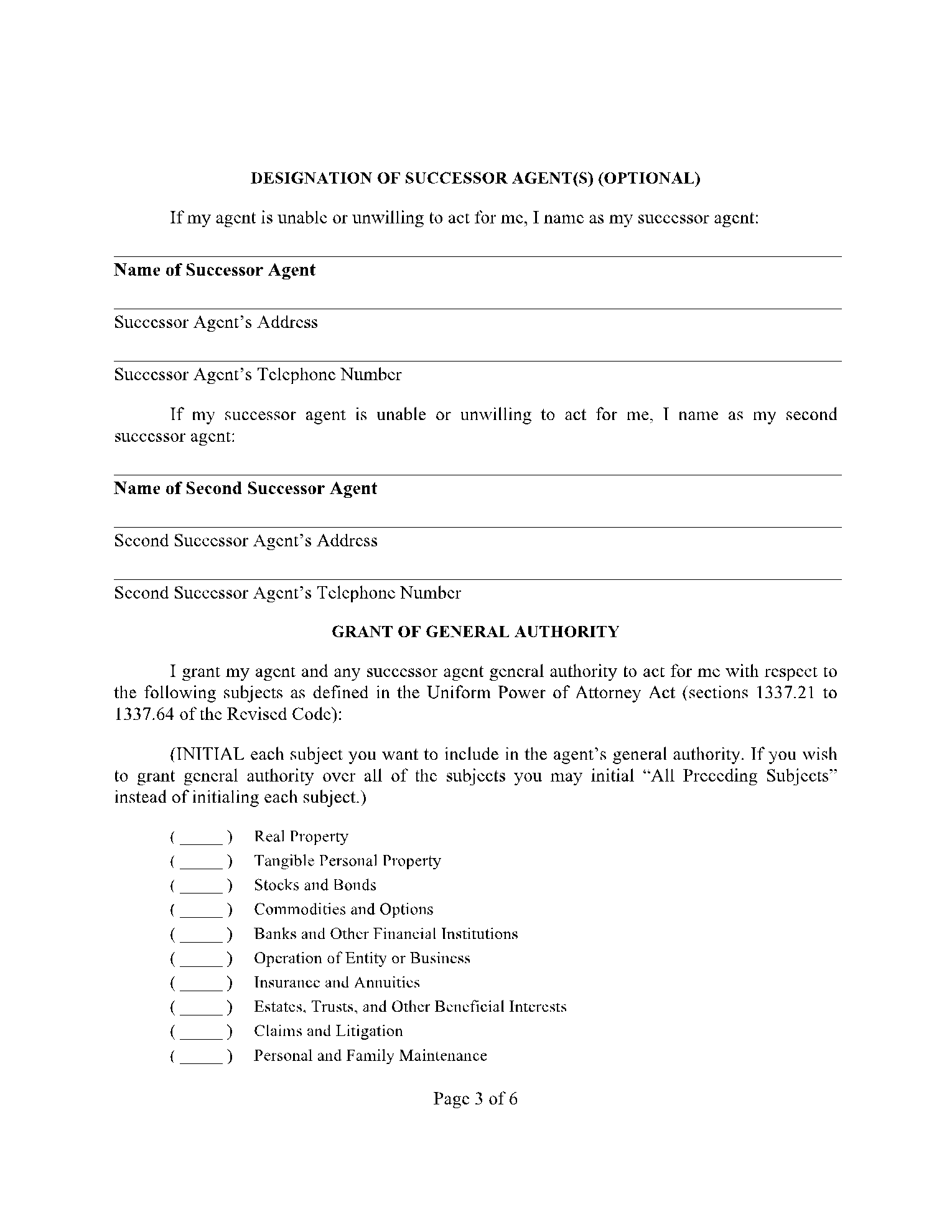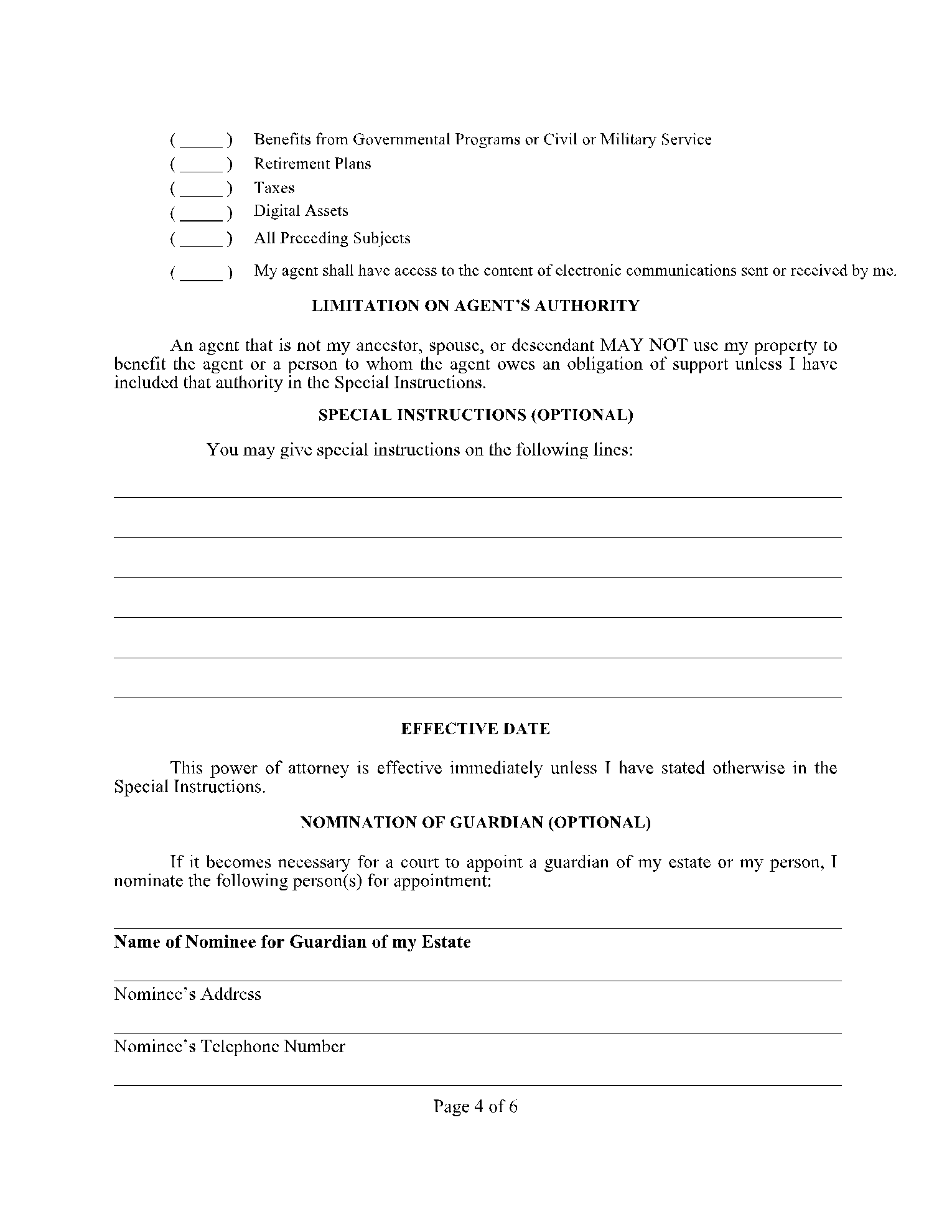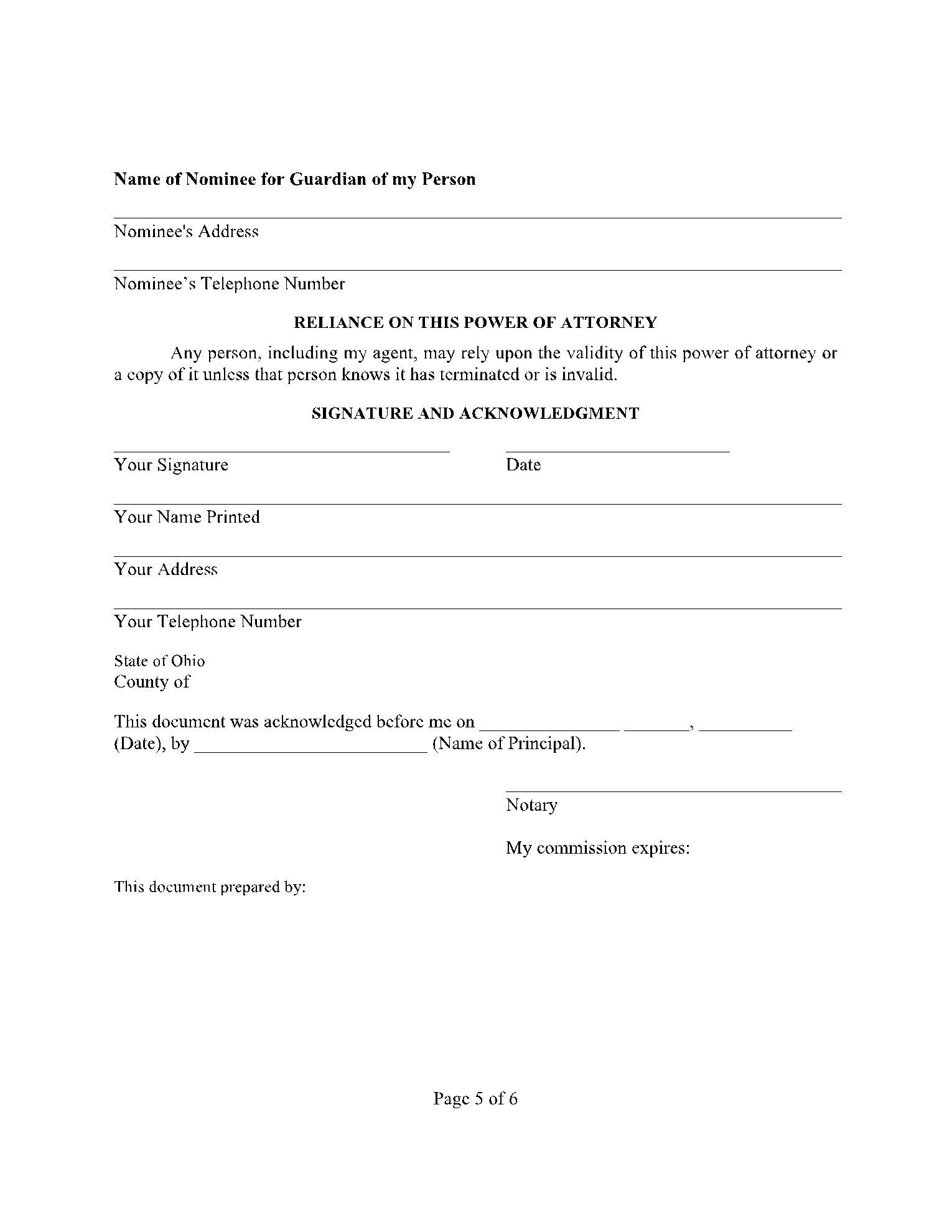A power of attorney form in Ohio can be a blessing in disguise for your bad days. It is a legal document that can lessen your worries when it comes to handling financial and medical requirements when you no longer can do it for yourself or become incapacitated.
An Ohio Power of Attorney has its own value and rules. Let’s take a look.
The components of an Ohio power of attorney form include:
-
- Type of power of attorney
- Executor details
- Agent details
- Purpose
- Property details
- Execution date Notarized
What Is An Ohio Power Of Attorney?
A power of attorney is a legal document that includes an agreement between two parties, namely an agent and the principal. An agent is given the authority to perform the financial and medical-related duties of the principal on his/her behalf.
An Ohio power of attorney form usually comes into force when the principal becomes incapacitated, unsound, unavailable, or in a situation in which he/she is unable to perform and make decisions himself/herself.
How Does The Ohio Power of Attorney Work?
In Ohio law, according to the new Uniform Power of Attorney Act, the term ‘agent’ is now identified or called ‘attorney in fact’, which means he or she doesn’t have to be a professional attorney to act as an agent.
However, an ‘attorney in fact’ doesn’t have the power to represent anyone in court.
In Ohio, the agent will continue to have authority even if the principal had already appointed a guardian or conservator.
The Ohio power of attorney works with the help of its Uniform Power of Attorney Act and also provides forms in Section 1337.60 of the Revised Ohio Code.
Types of Ohio Power of Attorney
Like every state, the Ohio power of attorney also works upon four certain types of POAs. These are:
General Power of Attorney
A financial power of attorney usually falls within this category if the agent is authorized to represent the principal on broad financial matters. It doesn’t restrict its validity to a specific matter only. Such power of attorney continues to function till the principal becomes incapacitated or dies.
Limited or Special Power of Attorney
Under a limited or special power of attorney, the agent is authorized to represent principal only on specific or limited financial requirements. This could even be any sort of single transaction. This stands valid only for a limited time period.
Durable Power of Attorney
A Power of Attorney that doesn’t end even after the principal becomes incapacitated is referred to as durable power of attorney Ohio. It continues to function even after the incapacity.
Springing Power of Attorney
A springing power of attorney starts to function on the occurrence of a specific event. This usually starts when the principal becomes incapacitated as opposed to durable POA that starts way before it and still continues to function after that too. Springing POA only springs up specifically.
Cases In Which POA Can Be Needed in Ohio
- Buying or selling of real estate property, stock or asset
- Handling financial transactions like withdrawing money from the principal’s bank, making investments or managing retirement accounts, taxes, etc.
- Handling business transactions, investing in, buying or selling
- Handling the purchase and termination of insurance policies, trusts, and annuities of principal
- Estate planning
- Taking medical decisions
Why Is the Ohio Power of Attorney Important?
A power of attorney can be of great help in varied circumstances. An Ohio POA helps you prepare for the worst in your life if you are a resident in Ohio. Life can be harsh on you anytime, and you may fail to make the right decisions. Moreover, if you have a dependent person such as your spouse, children, your parents, or anyone alike, it becomes all the more important to secure their life after you.
The Ohio power of attorney helps you and your loved one in such dire need situations to make meaningful decisions on your behalf.
In Ohio, you can have your power of attorney made if you are mentally competent and is over 18 years of age. Having a Power of Attorney also eliminates the issues arising out of estate planning. In the absence of a POA, you may otherwise have to attend court proceedings for having a guardian or conservator. This process can be really time confusing, emotionally draining, and expensive.
Therefore, having an Ohio financial or healthcare power of attorney can be helpful and important. Moreover, you don’t necessarily have to appoint an attorney for that; any person you trust can become a POA agent for you and therefore is known as ‘attorney in fact’ in Ohio law.
Ohio Power of Attorney Requirements
The Ohio power of attorney requirements are simple to follow. These are:
- You should be of sound mind and over 18 years of age
- It should be signed and dated by the principal, i.e., date of execution
- It should be signed by two eligible and non-related witnesses
- It doesn’t necessarily have to be notarized according to law. However, it is advisable to do so to make it valid in other states.
- It should also include another itemized statement that states the name of the person who can be an attorney-in-fact.
In Ohio, the power of attorney forms plays an important role. They have to be in accordance with Ohio laws to be valid.
Ohio has an approved financial power of attorney form.
However, you need to be extra careful with healthcare POA which should follow certain guidelines, as mentioned in section 1337.17 of the Ohio Revised Code.
If you are looking for foolproof Ohio power of attorney, CocoSign provides Ohio free power of attorney forms that follow all the guidelines laid out by Ohio ORC. We provide numerous templates and POA forms of other states as well. Be affirmed of our forms’ righteousness.
Our forms can also be customized according to the needs as Ohio follows rather strict norms when it comes to special instructions that should constitute part of financial and healthcare POA forms.
